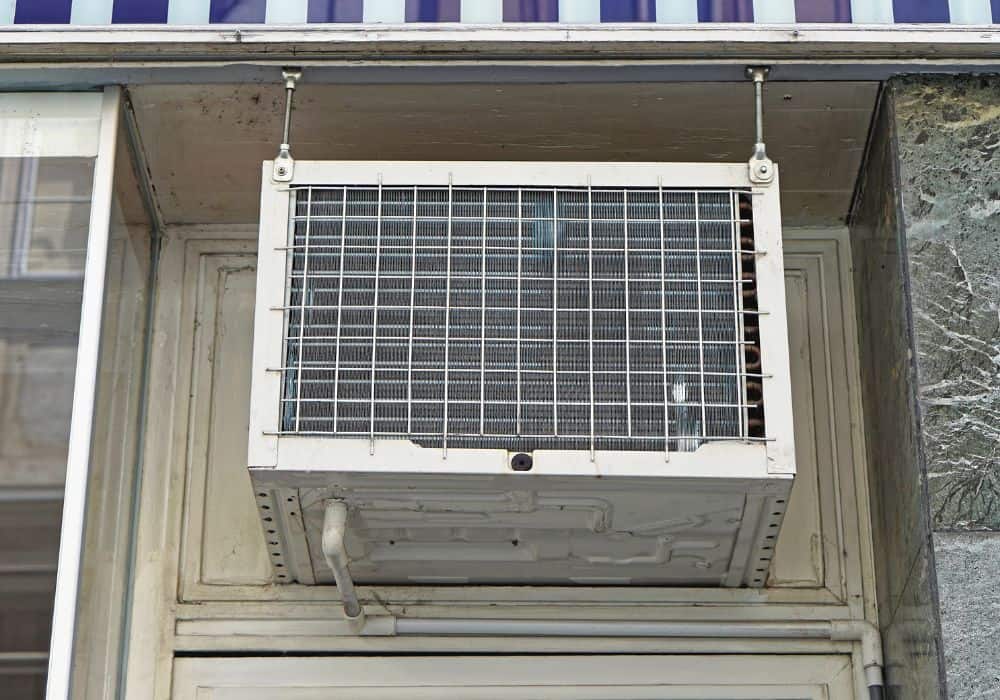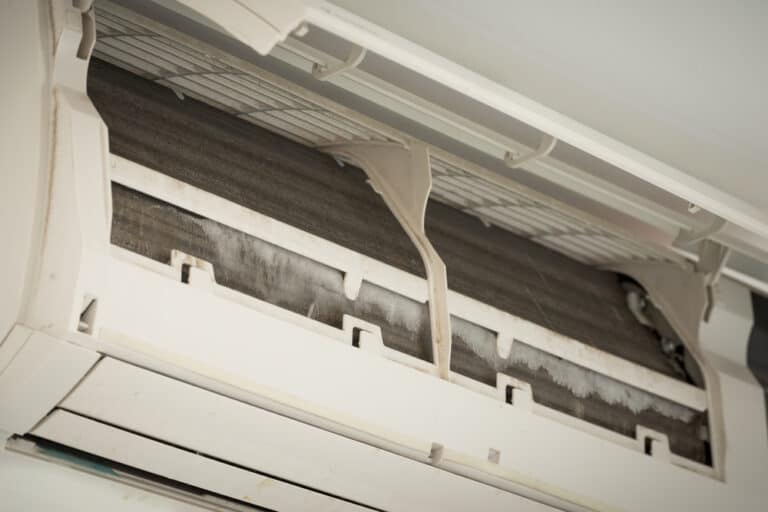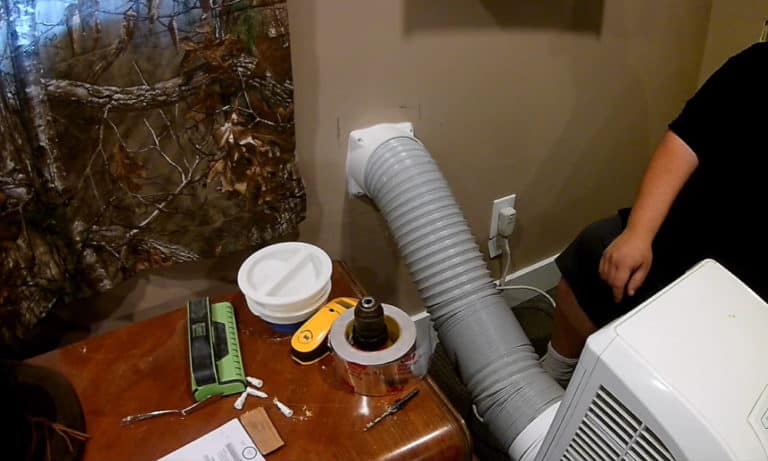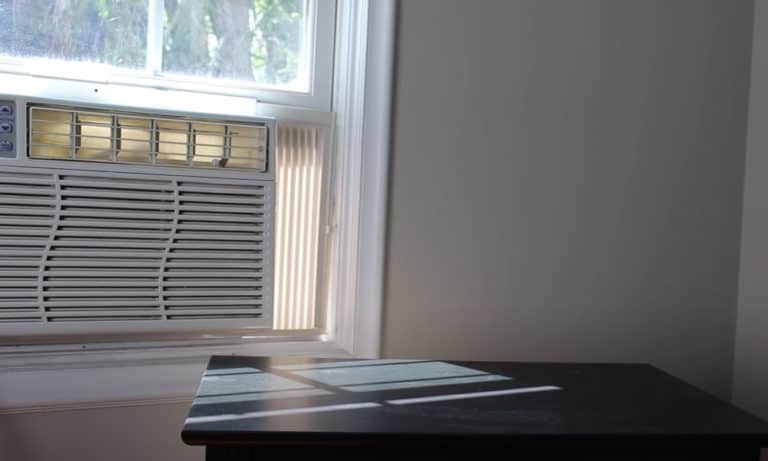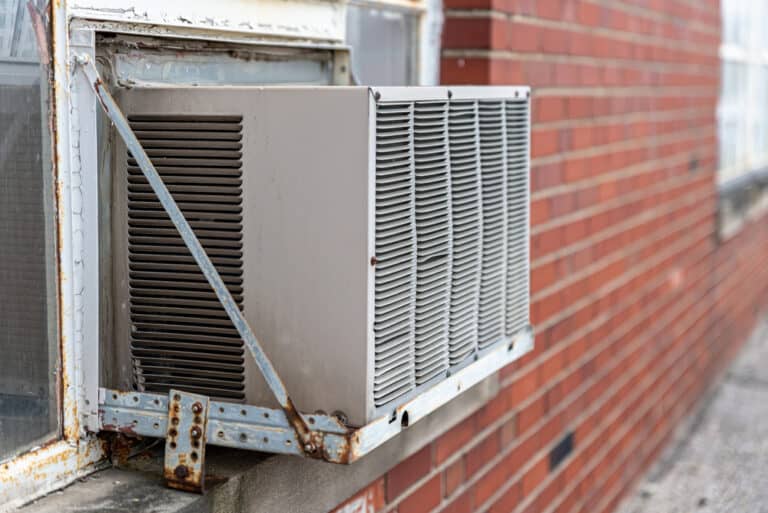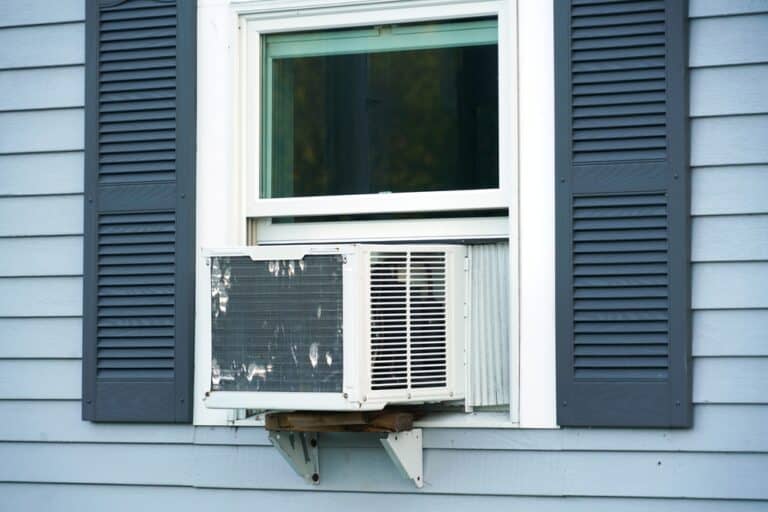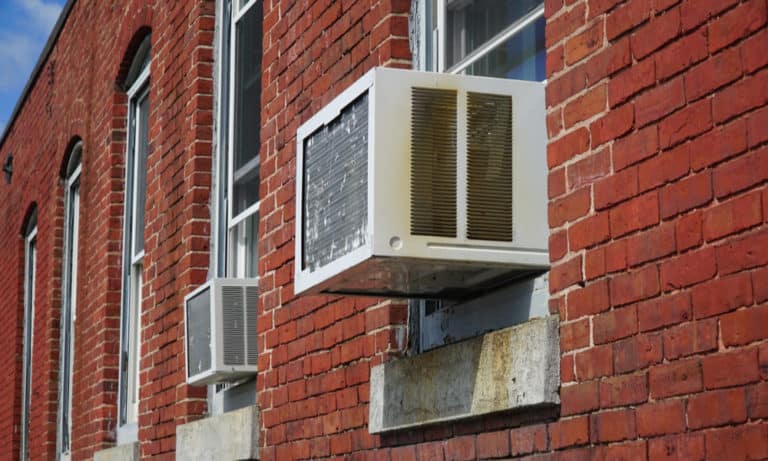A silently working AC unit feels like a gift from heaven during a scorching summer day. However, it can be off-putting to have a window air conditioner making a clicking noise. Do these sounds signal serious malfunction?
In this article, we will look at the possible reasons why your window air conditioner makes clicking noises. You will learn what cases are harmless and which ones require professional help.
Why Is My Window Air Conditioner Making Clicking Noise? (With Fixes)
Here are eight common issues associated with air conditioner noise.
1. Thermal Expansion
When troubleshooting, you need to determine the frequency and development of the noise. So, I will ask you: how often do you hear the clicking? If you only hear the noise shortly after you turn on the AC, it might be a simple matter of the duct expanding, especially if the noise is similar to the echoes produced when you tap on a big metal sheet.
When the system is off, warm air makes its way into the thin ducts and the warmth causes them to expand. The metal cools and contracts rapidly as soon as cold air passes through, resulting in cracking noises sometimes followed by a loud pop.
Thermal expansion is often harmless, so there is no need to panic. However, you should still inform your technician about this during your next maintenance visit.
2. Fan Problems
The fan is one of the first places to check as a potential source of the problem, especially when the noise starts off slow as the system kicks on and builds up over time. This could be a result of an obstruction. Whenever debris hits the fan, it creates a continuous noise until it clears out on its own or when you remove the blockage.
Blockage in the fan is a common problem in window air conditioners. Debris, such as leafy bits and wood fragments, can easily pile up inside and choke off airflow, affect your HVAC efficiency, and damage other parts of the system. Fortunately, you can solve this problem on your own since the air filter fan is accessible.
But if the fan has gone broken or bent, you might need the help of a licensed technician for a small repair or blade replacement. Likewise, there could be greater damage, especially if the problem has been going on for too long and the AC has had to work harder than it should.
3. Control Board Failure
A malfunctioning circuit or control board is another common culprit for the clicking noises of air conditioners. Do not attempt to repair electrical components such as the control board as there is a high risk of danger for you and your unit. This type of problem is always best left to the pros.
4. Loose Hardware
Another reason why your AC unit might be making noises is loose hardware. Air conditioners comprise numerous components and when they come loose, you will hear not just clicking but also rattling or loud banging, as though something is being tossed around inside the machine.
Lack of maintenance or signs of wear and tear due to prolonged use are two common reasons for the looseness. Often, the first one to go is the fan. Check the fan by removing the cover of the indoor unit.
5. Faulty Thermostat
If there is no loose hardware or debris gummed up inside the machine, then perhaps it has something to do with the thermostat.
The thermostat is the brain of your HVAC unit. It sends signals to the air conditioner relative to the room temperature. While thermostats are expected to last around 10 years, some may develop faults early for various reasons.
Here are common signs associated with a failing window AC thermostat:
- Failure to Reach a Certain Temperature
You should be able to adjust the temperature however you wish. A working thermostat makes a quick tick as it makes adjustments.
But if you have a broken thermostat, you might not hear anything and the AC will fail to respond to the updated settings you apply.
If such is the case, it may need a replacement.
- Erratic Cycling
Your air conditioner may still run even with a broken thermostat, but you may begin to notice changes in your utility bills and level of comfort.
A faulty thermostat will cause the air conditioner to shut down without your order. Failure to achieve a full cycle leads to ineffective cooling or heating.
Frayed or burnt wiring, accumulated dirt, and dislodgement are a few of the reasons that may cause a thermostat to operate with a mind of its own. While DIY troubleshooting is cheap, it would be best to hire an HVAC specialist to inspect and fix the underlying issues.
6. Freezing
Condensation buildup is another possible reason for your air conditioner’s noise, especially if you live in a high-humidity area. The popping, cracking, and clicking may indicate that the copper tubes are freezing. As ice cracks and falls, it echoes through the system. This happens when the temperature is often set too low.
The coils freeze if the saturation pressure always drops to sub-zero temperatures and this occurs when there is inadequate airflow or heat. Minimal heat transfer and suction pressure cause the water outside the evaporator coils to ice.
To confirm whether or not this is the issue, you will want to set your thermostat to a higher-than-usual temperature to see if the noise stops. If the noise does stop but returns after a short period, there might be a problem with the unit itself.
Moreover, the lack of proper draining can only add to the problem. So you may also want to check if your unit is draining properly. Check if the collection pan is clogged or brimming with water. If yes, clean it out and see if there is any improvement. Otherwise, you may need to call a professional HVAC technician to diagnose the problem.
7. Water Inside the Unit
Heavy rainstorms may cause water to go inside the sensitive parts of your air conditioner, and this causes not only clicking or cracking noises but serious performance issues as well. Turn off your unit immediately if you suspect this is the case.
8. Broken Compressor
The compressor is a crucial part of the air conditioning system. As the name implies, it is responsible for compressing the refrigerant (a chemical compound that absorbs environmental heat and provides cool air once it runs through the compressor). However, too little or too much refrigerant can create too much pressure and strain the compressor.
Any noise coming from the compressor is a sign of a serious problem. You should not attempt to repair the compressor yourself and risk damaging the entire system. Disconnect the unit from power and call a professional.
Other Air Conditioner Noises You Should Take Seriously
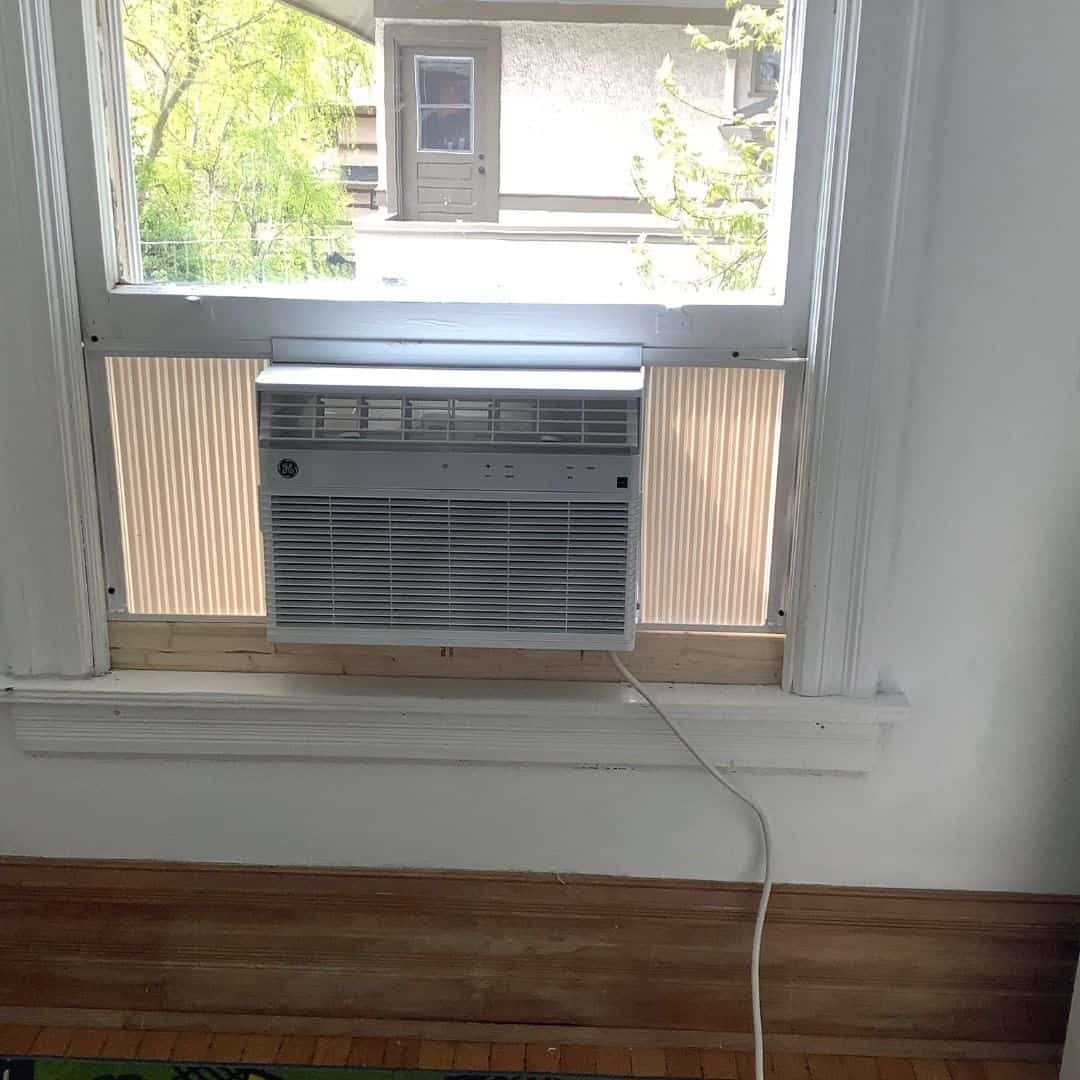
Has your air conditioner gotten noisier than it used to be? It is common for AC systems to operate at a certain decibel, and it is often barely noticeable. Meanwhile, strange and persistent sounds may indicate something that needs your immediate attention.
Buzzing
Buzzing suggests an electrical problem. The noise occurs when electricity jumps between the circuitry and this is inevitable as air conditioners get older.
Your unit might seem to be working just fine for now, but you should never take this issue lightly as it can lead to greater damage that requires more expensive repairs later on, or worse, a house fire.
Whistling
Persistent whistling suggests a refrigerant leakage, which could occur within the internal valve or among the refrigerant lines. Turn off the air conditioner right away and have this problem addressed by a professional. Inhaling Freon is dangerous to your health.
Hissing or Grinding Noises
Grinding noises often indicate that the pistons in the compressor are problematic. These components usually make such noises when the compressor has reached its limit, which means that your air conditioning system has seen better days.
A loose blower fan belt may also produce grinding noises when it is making contact with other parts inside the air conditioner cabinet. You can still keep the air conditioner running, but over time, it could result in much more extensive damage.
How Do I Know if My Air Conditioner Needs to Be Replaced?
In the same way that distracting sounds indicate problems, so too do foul smells. Your air conditioner should be circulating clean, neutral-smelling air.
Other obvious signs include limited airflow and skyrocketing energy bills. Even if your home is properly cooled, your AC might be working too hard to get the job done.
It would be wise to consider replacing your AC unit, especially if it is about 10 years old or more. Repairs could easily build up down the road and it will cost you more than getting a new air conditioner.
Takeaway
Noisy air conditioning units are an annoying problem for everyone. Often, the clicking noise is due to minor issues, but there could be other problems as well, especially when the noise lasts longer and becomes more frequent.
Whatever the case may be, it would be best to get in contact with an AC repair professional so that you can get the exact answer you need.

